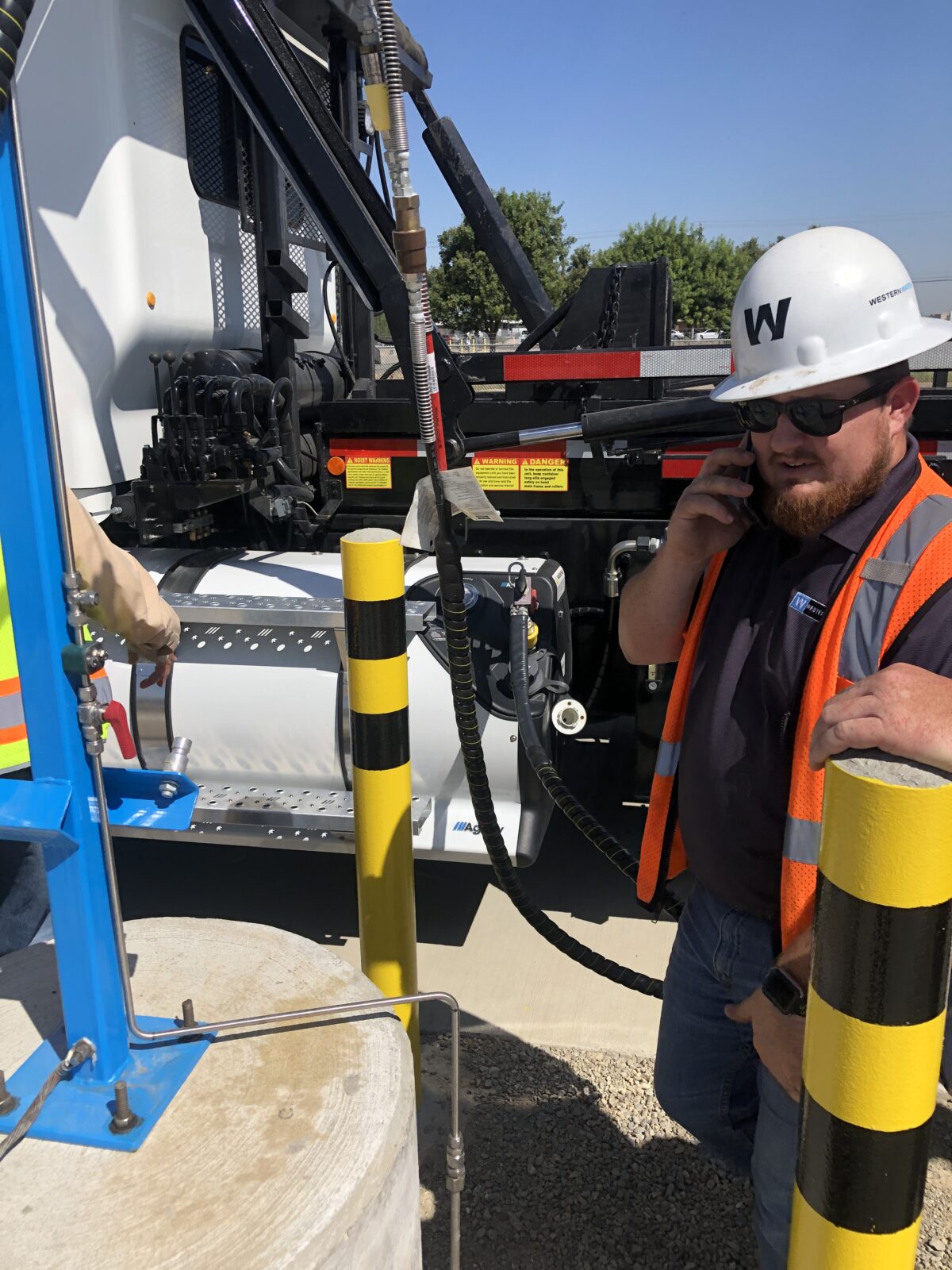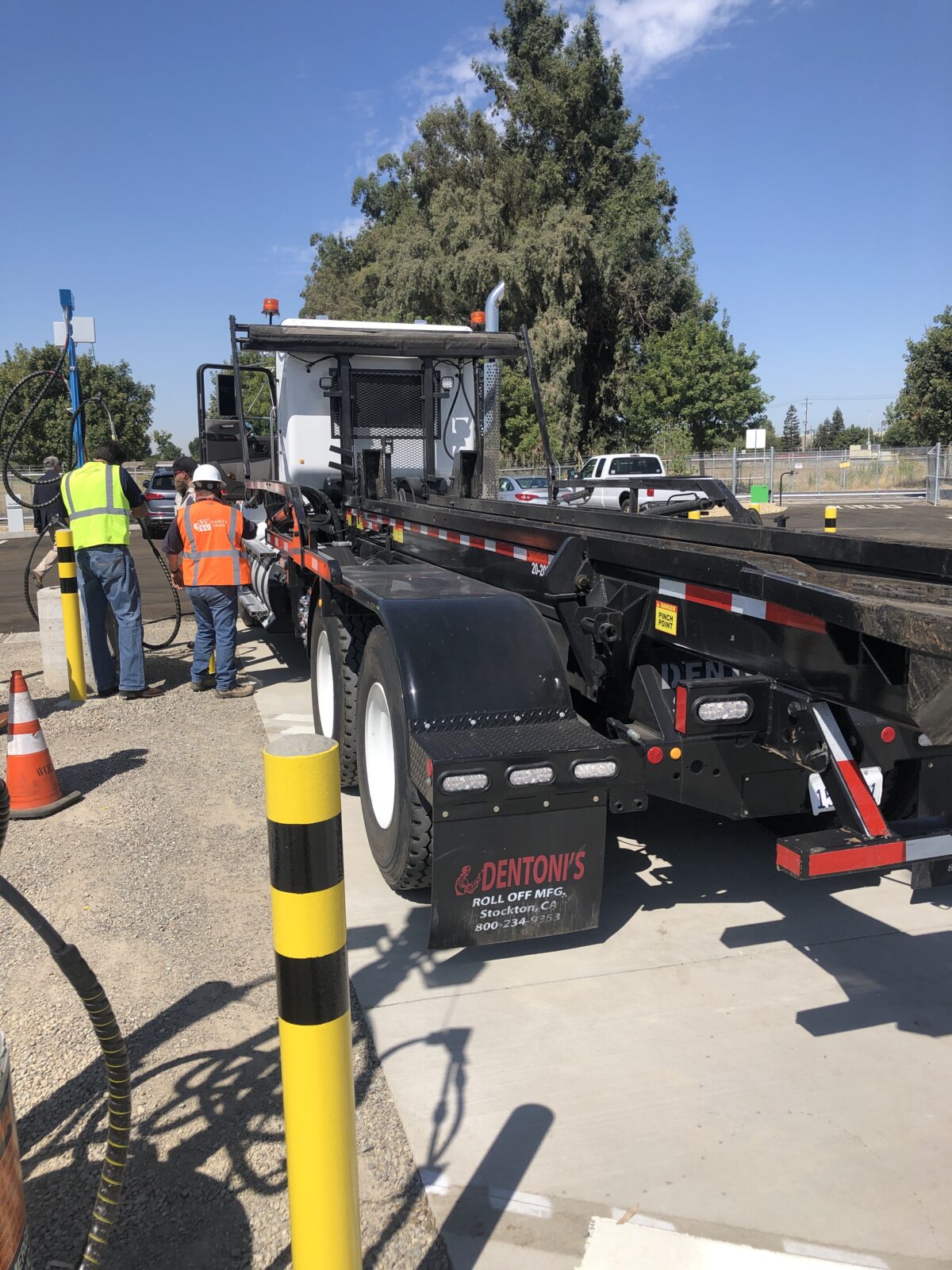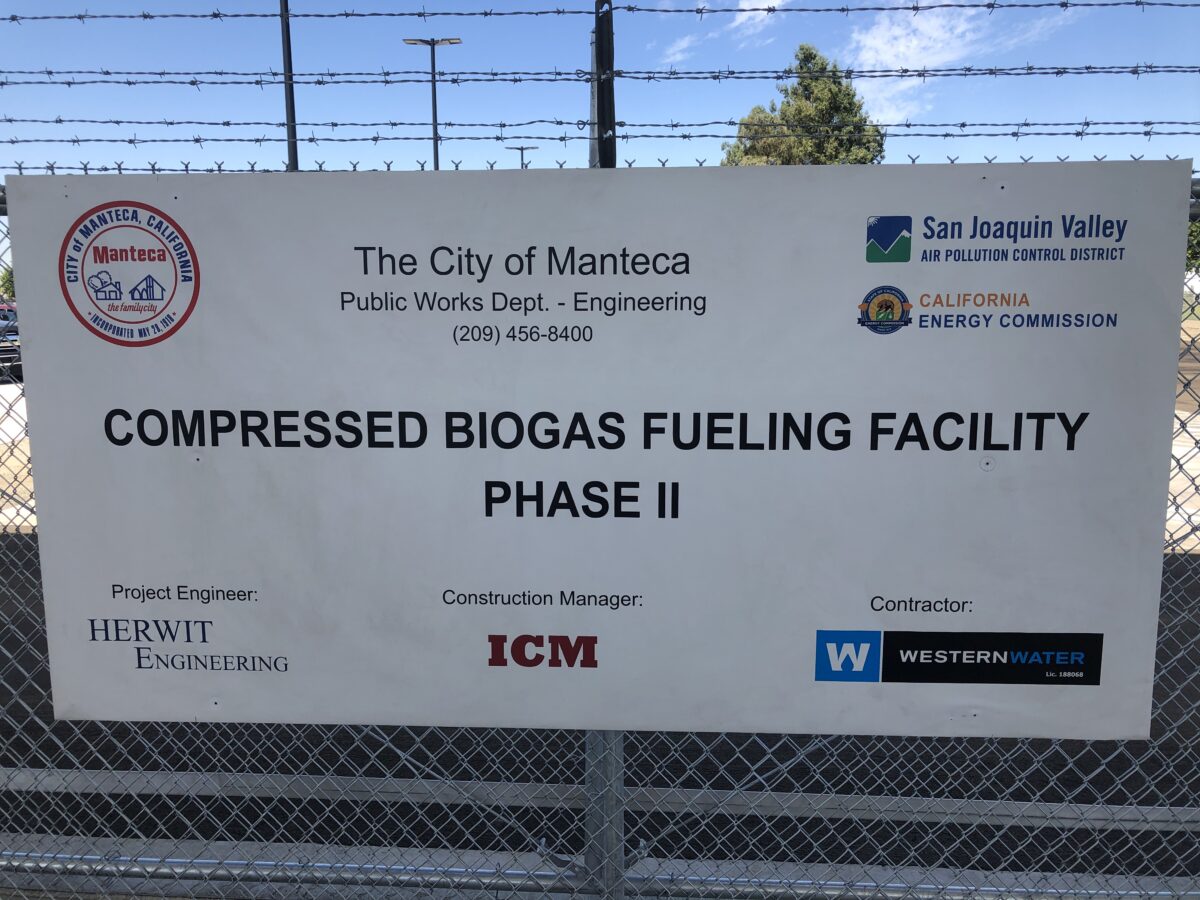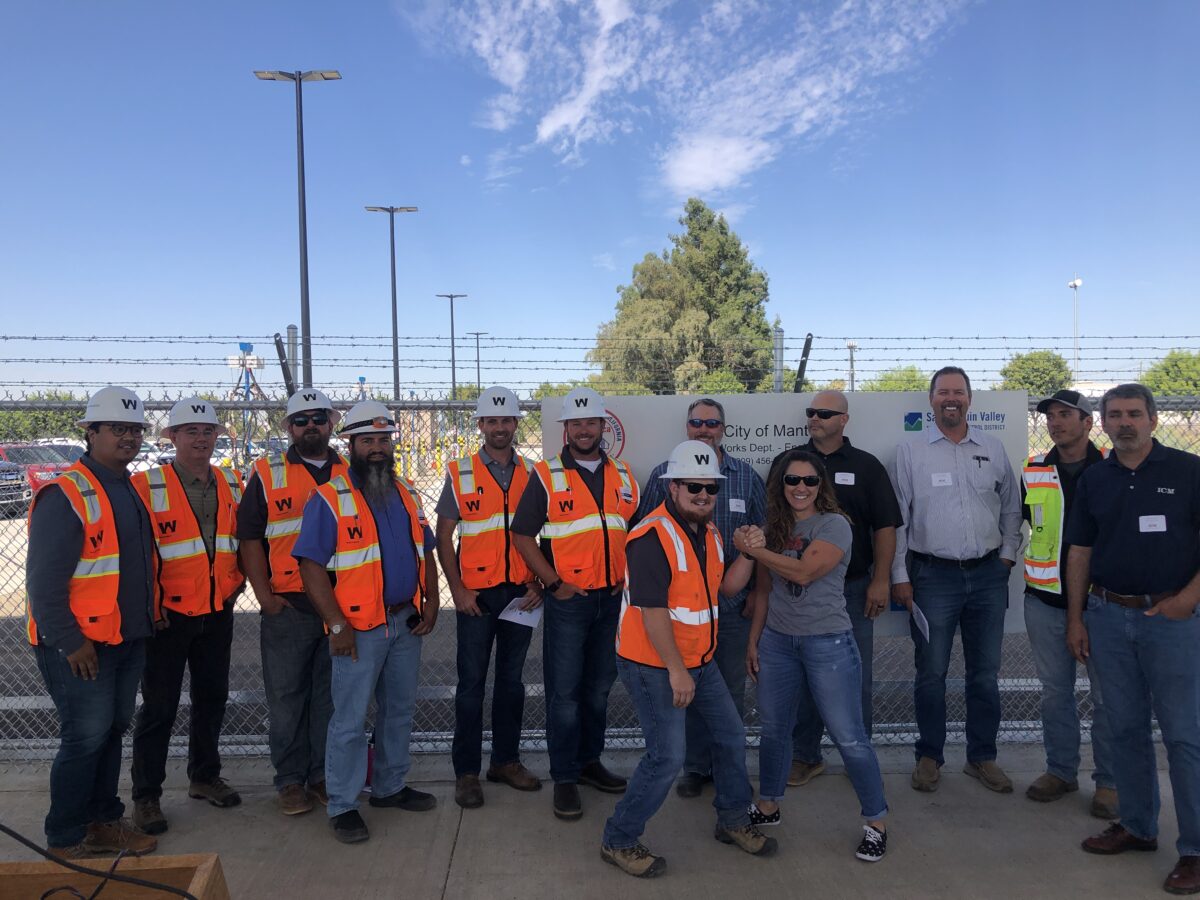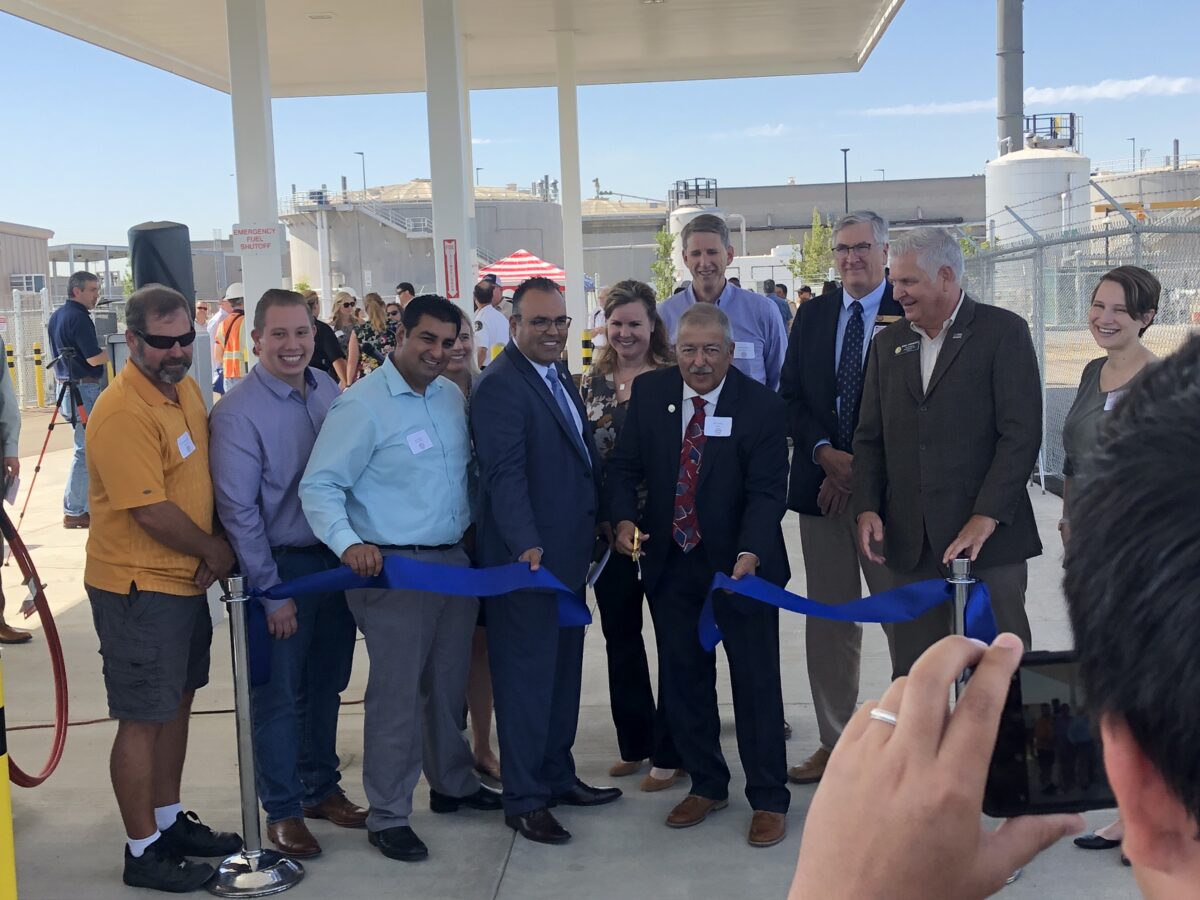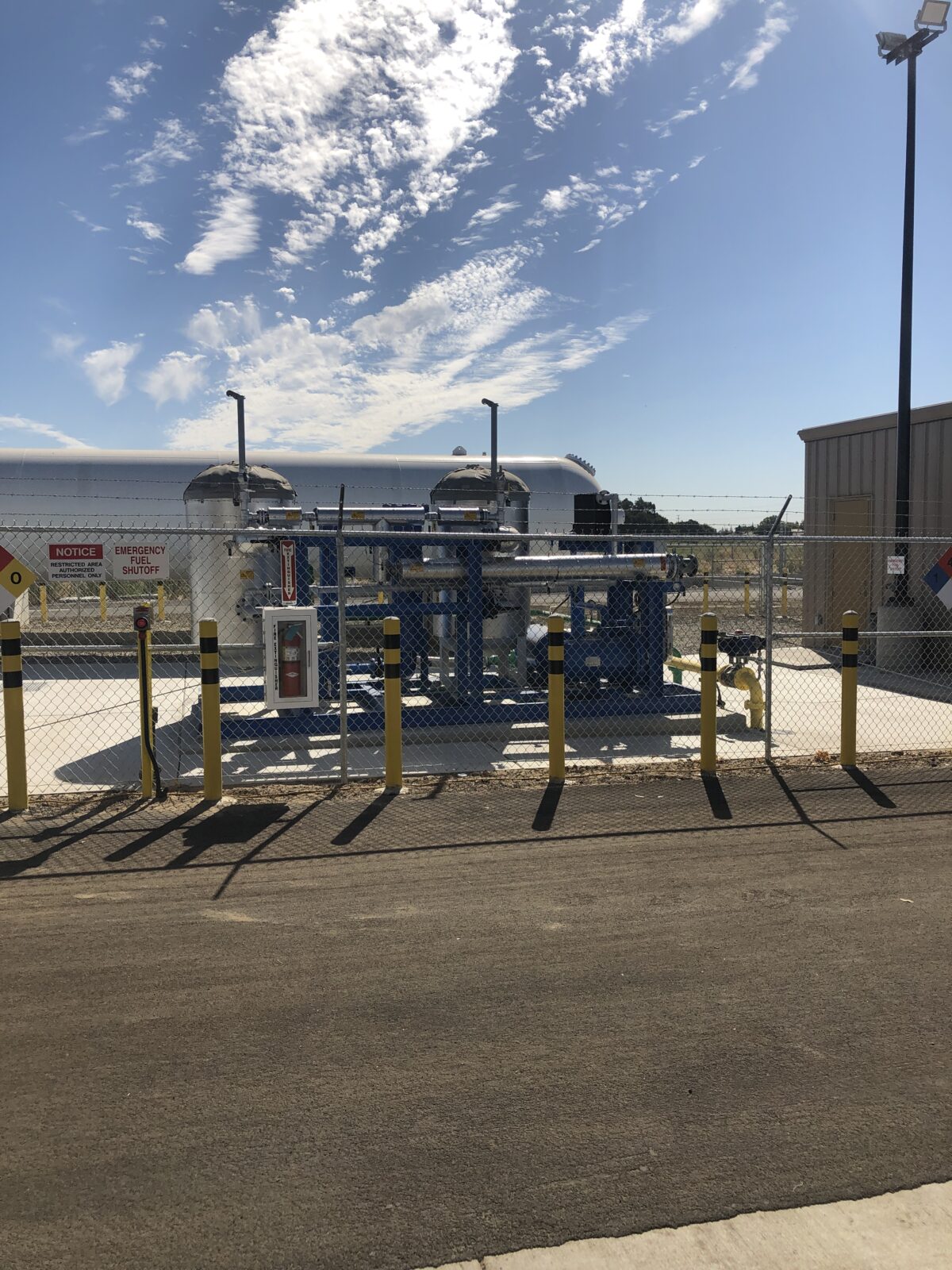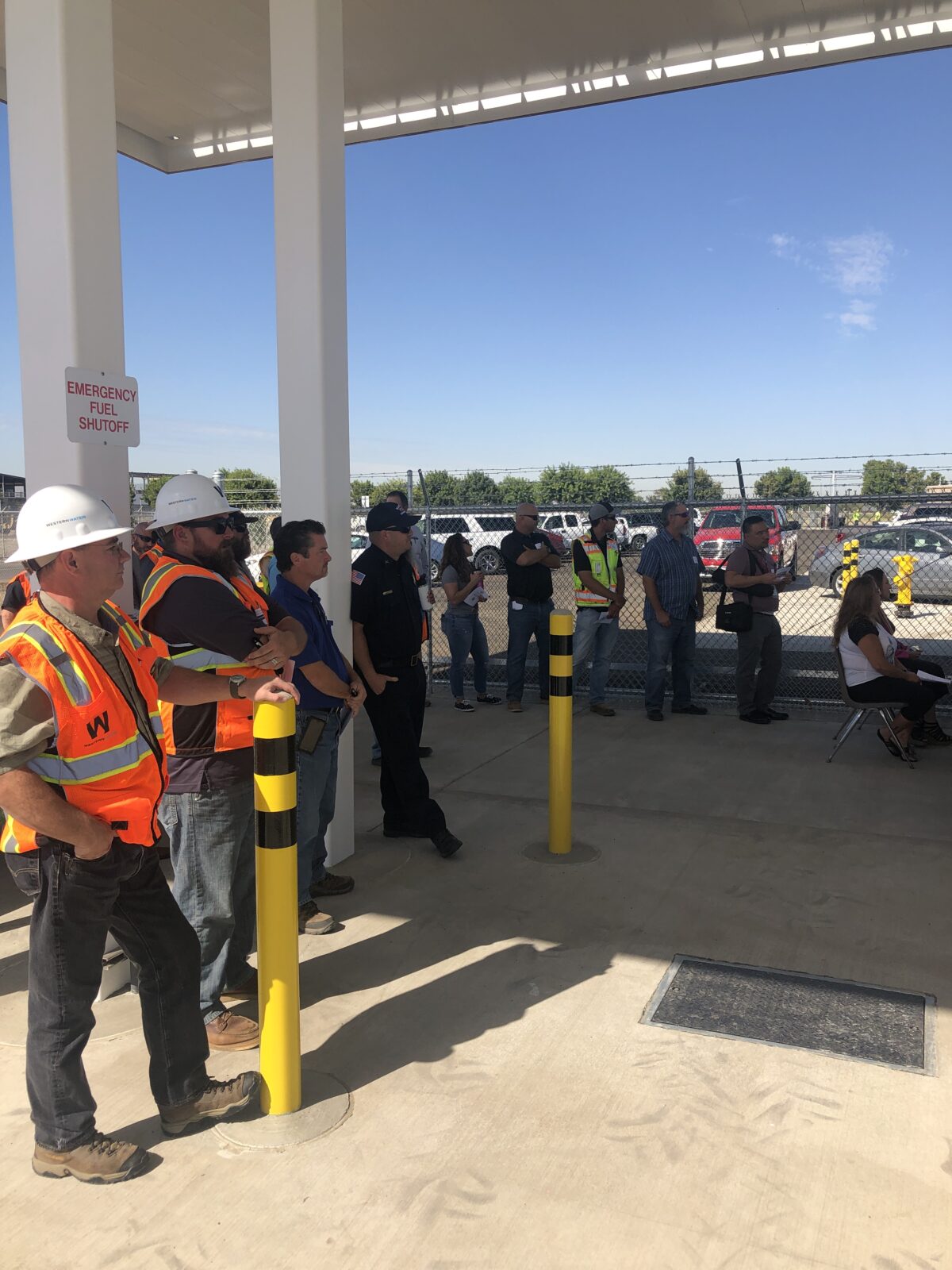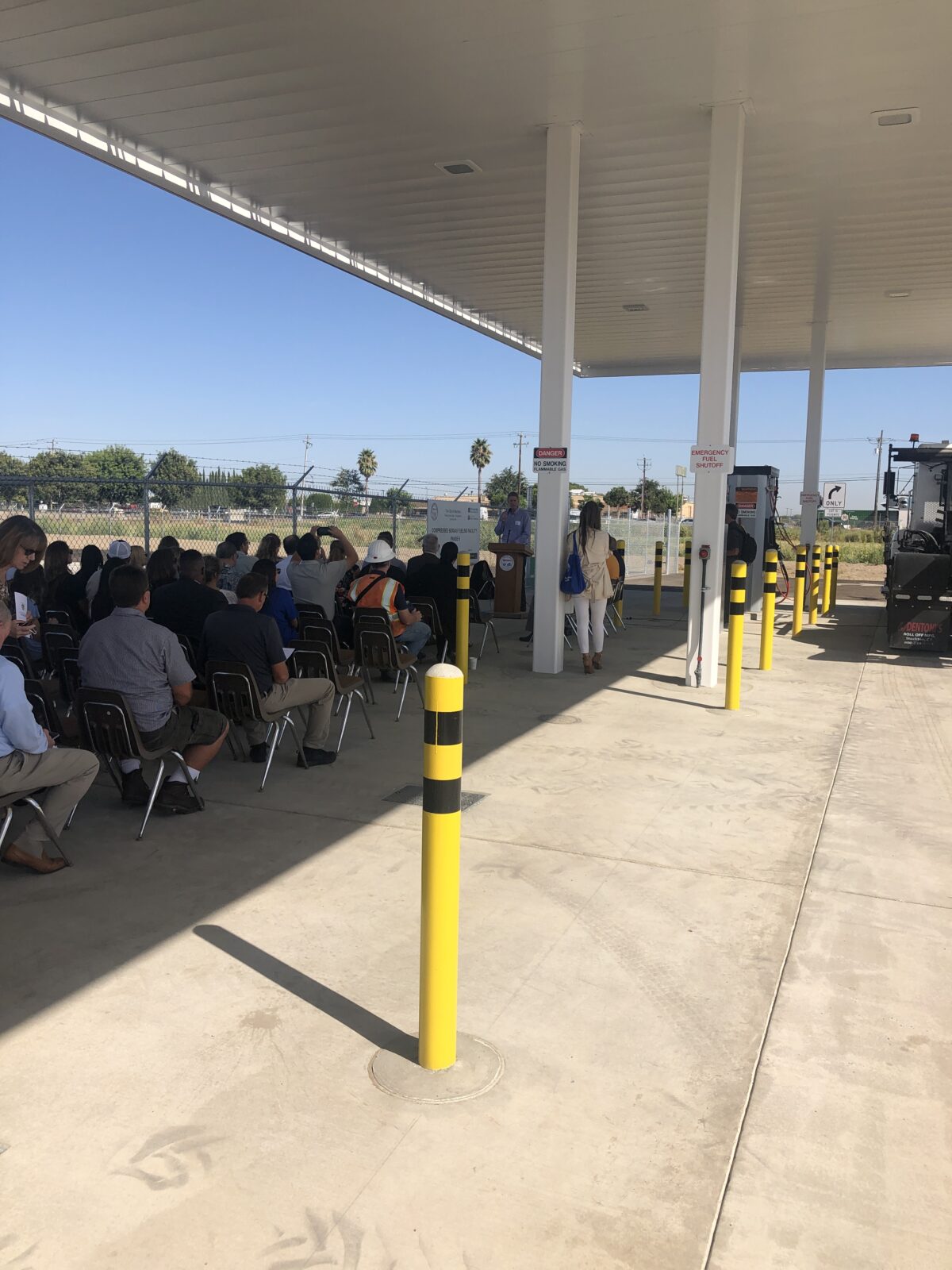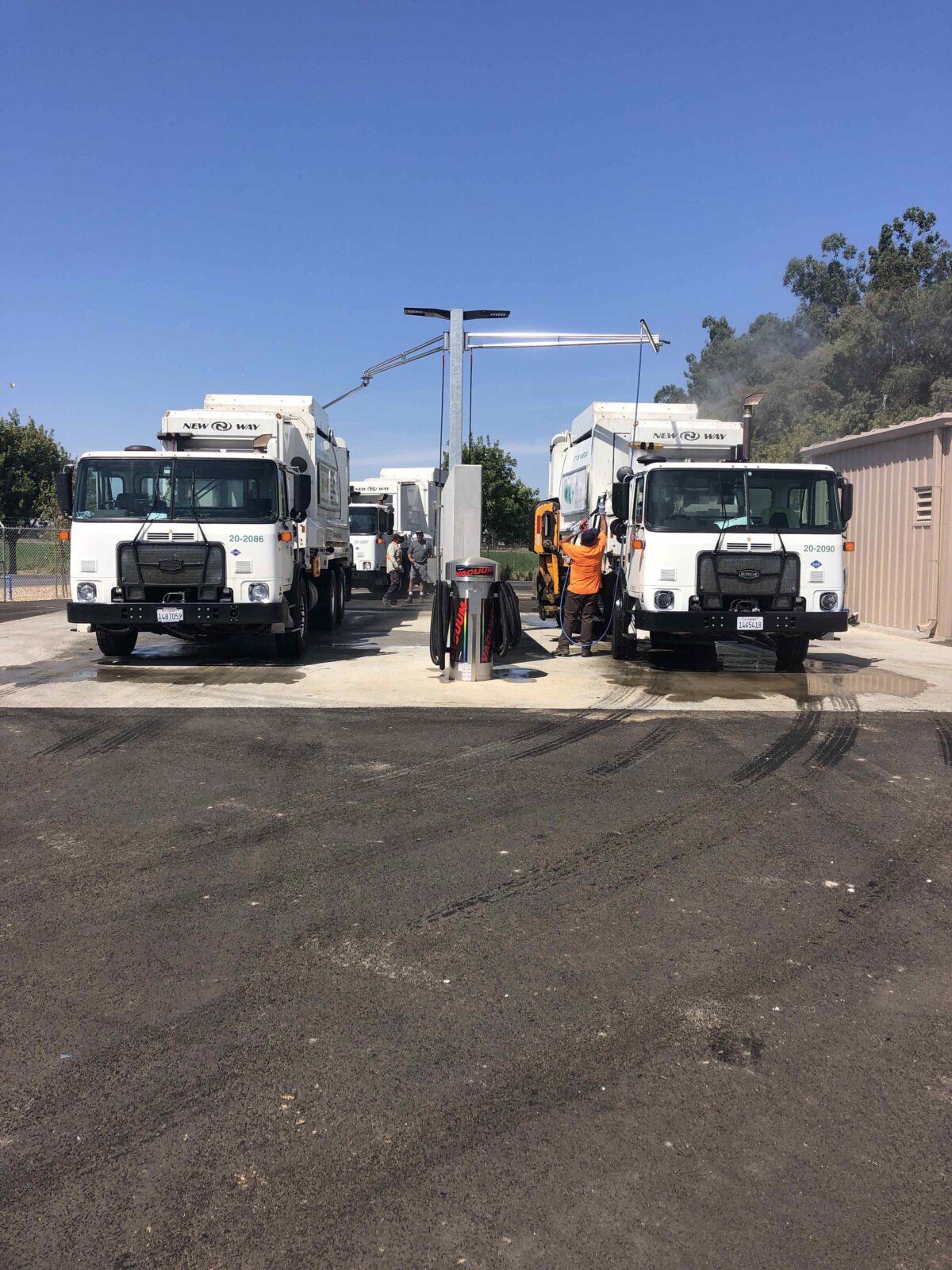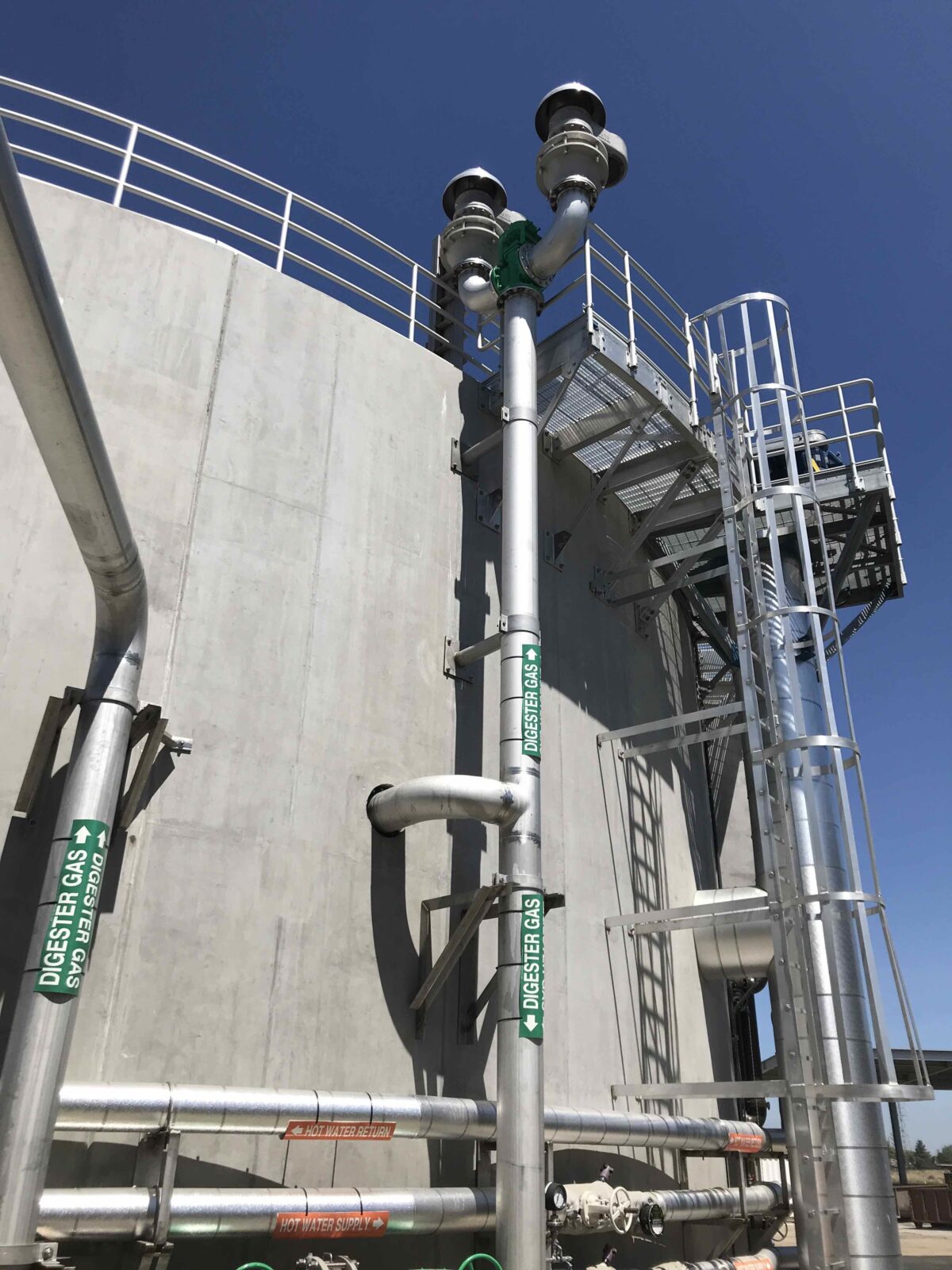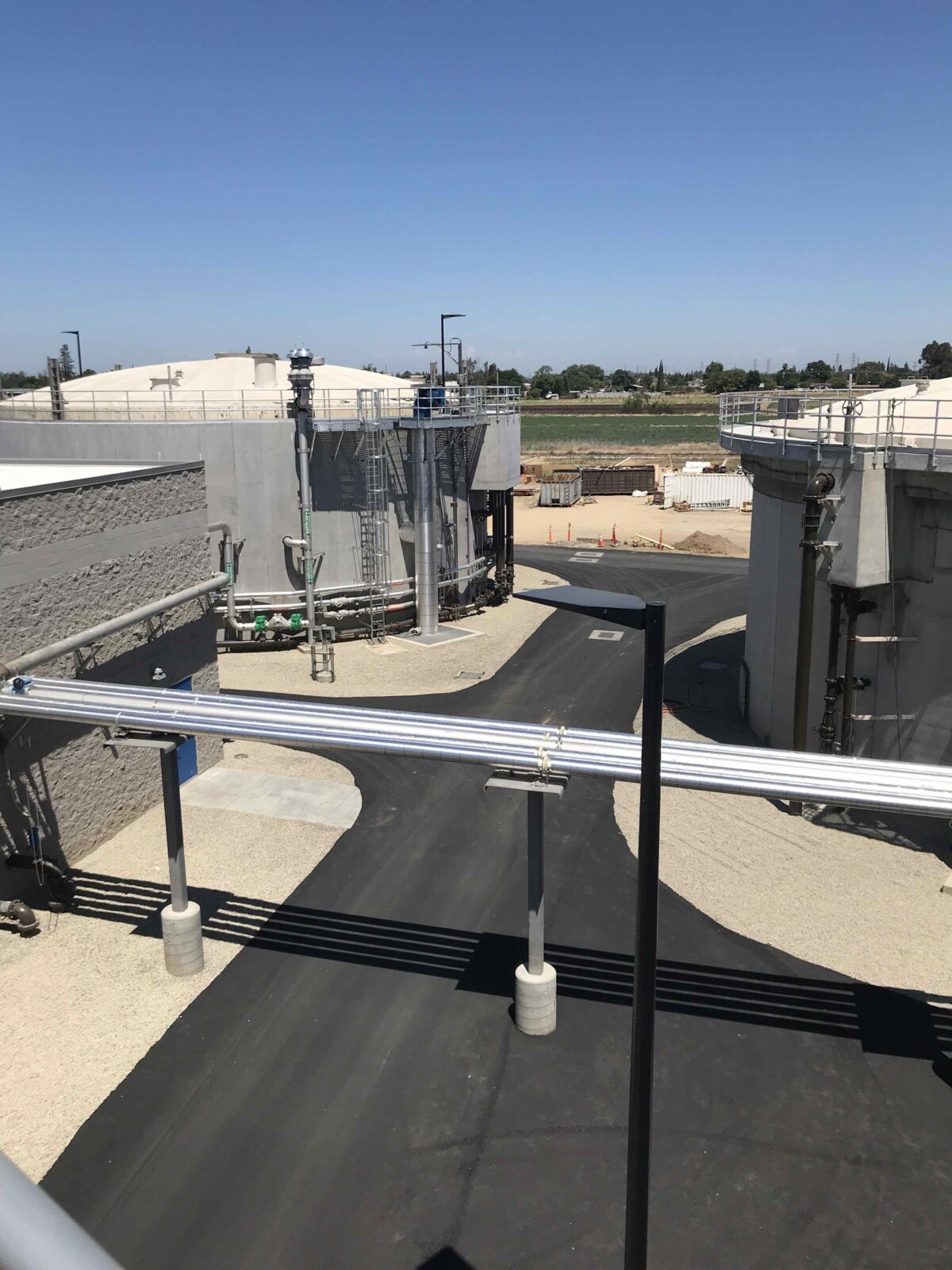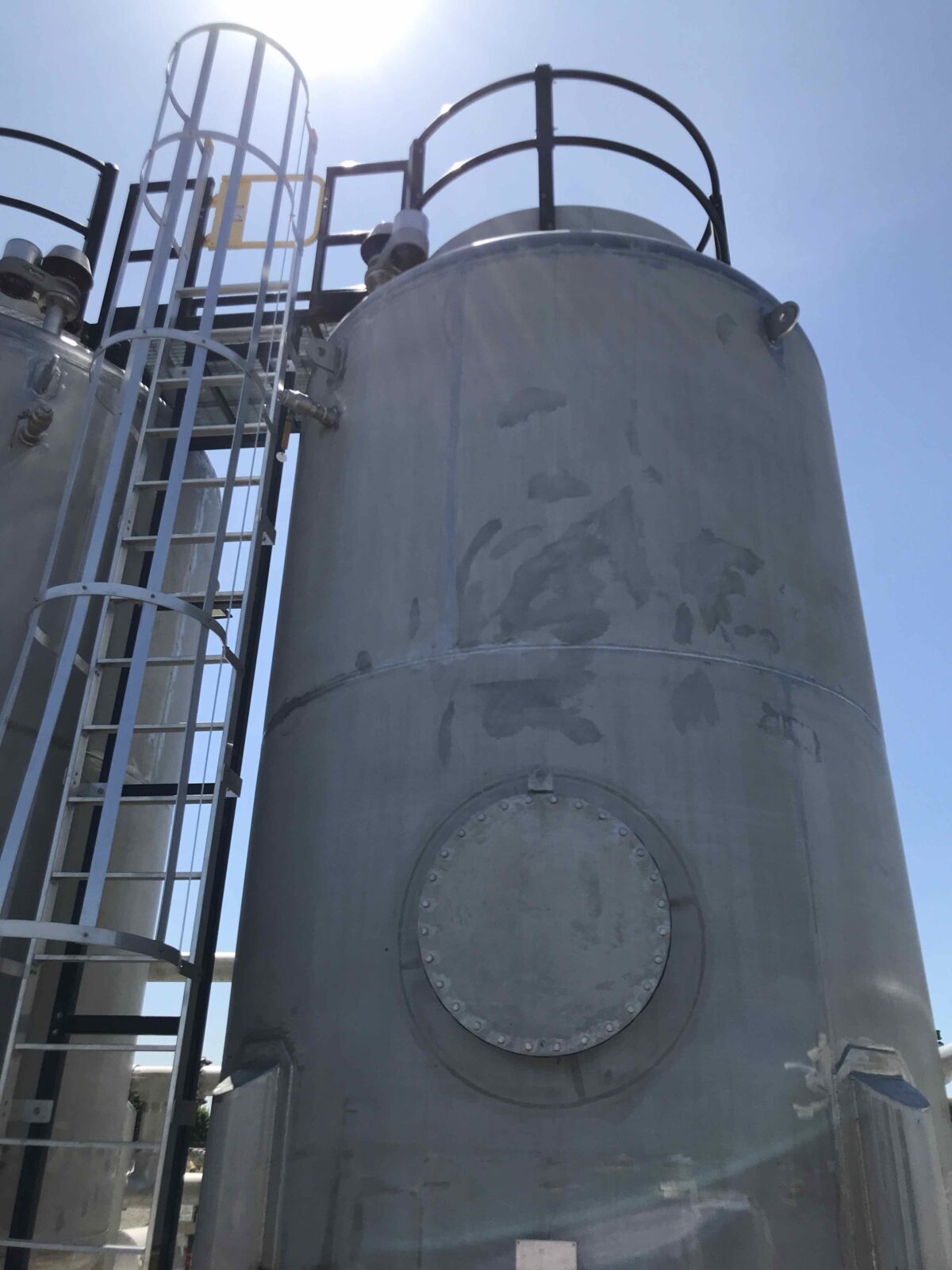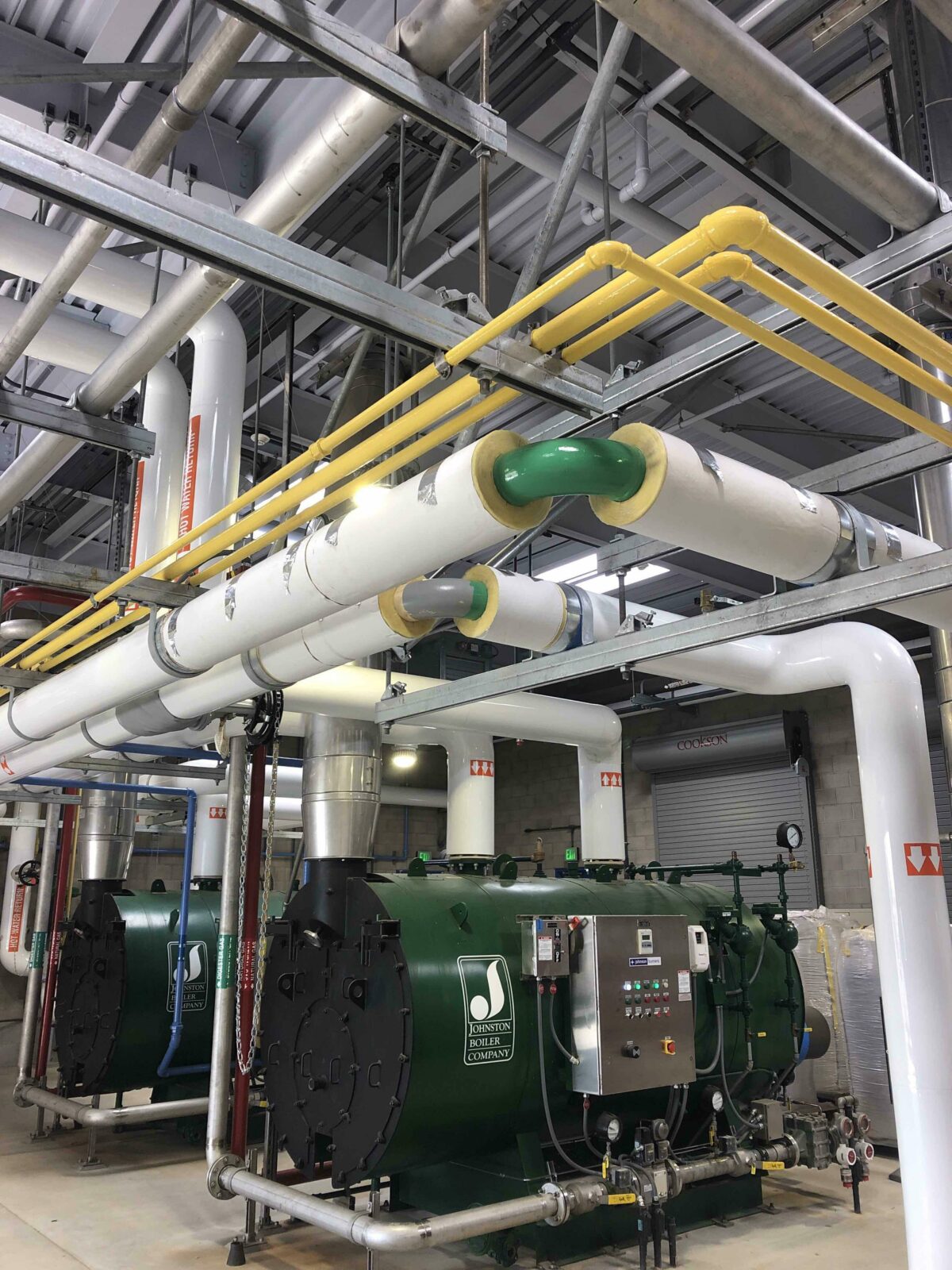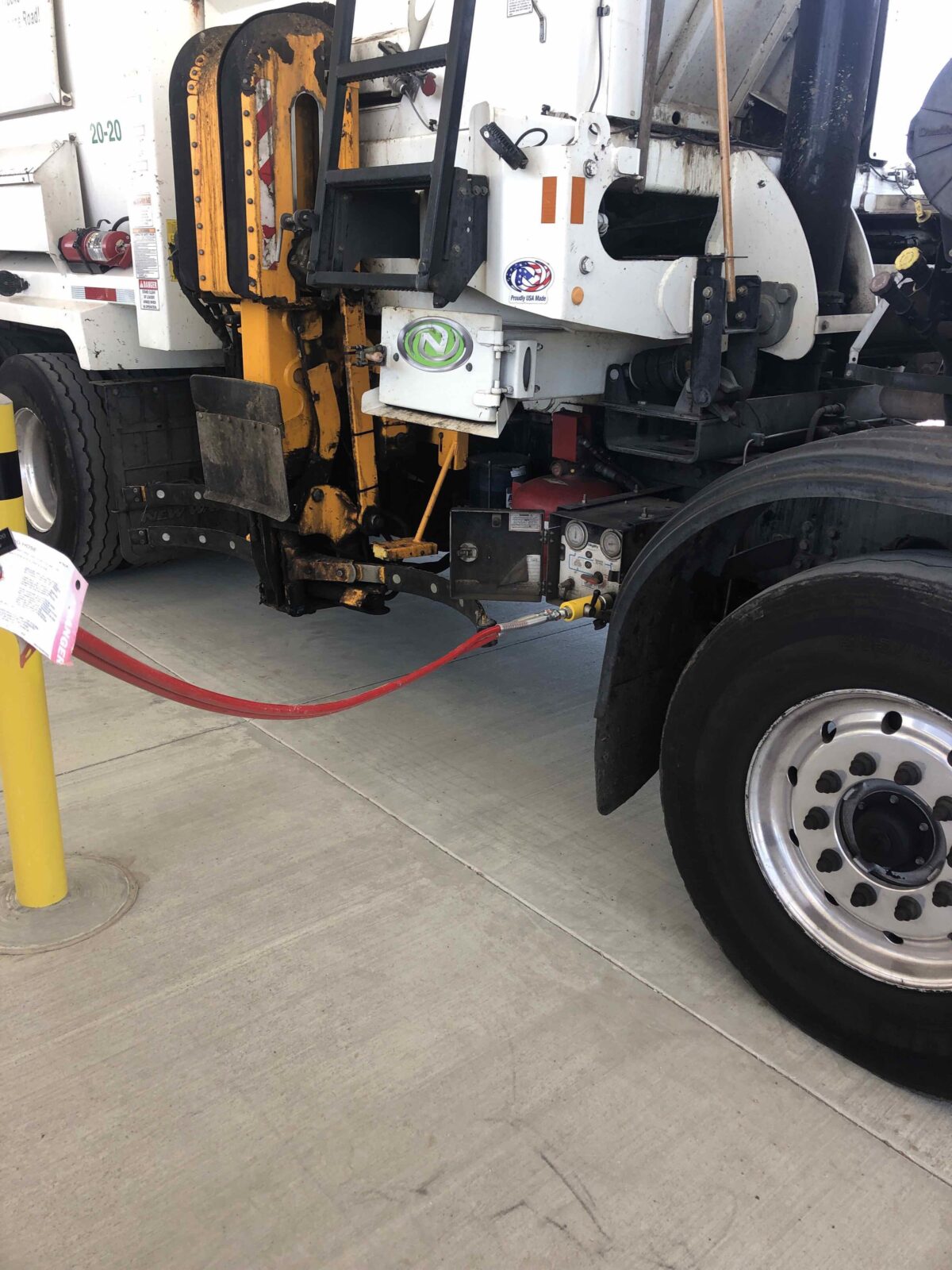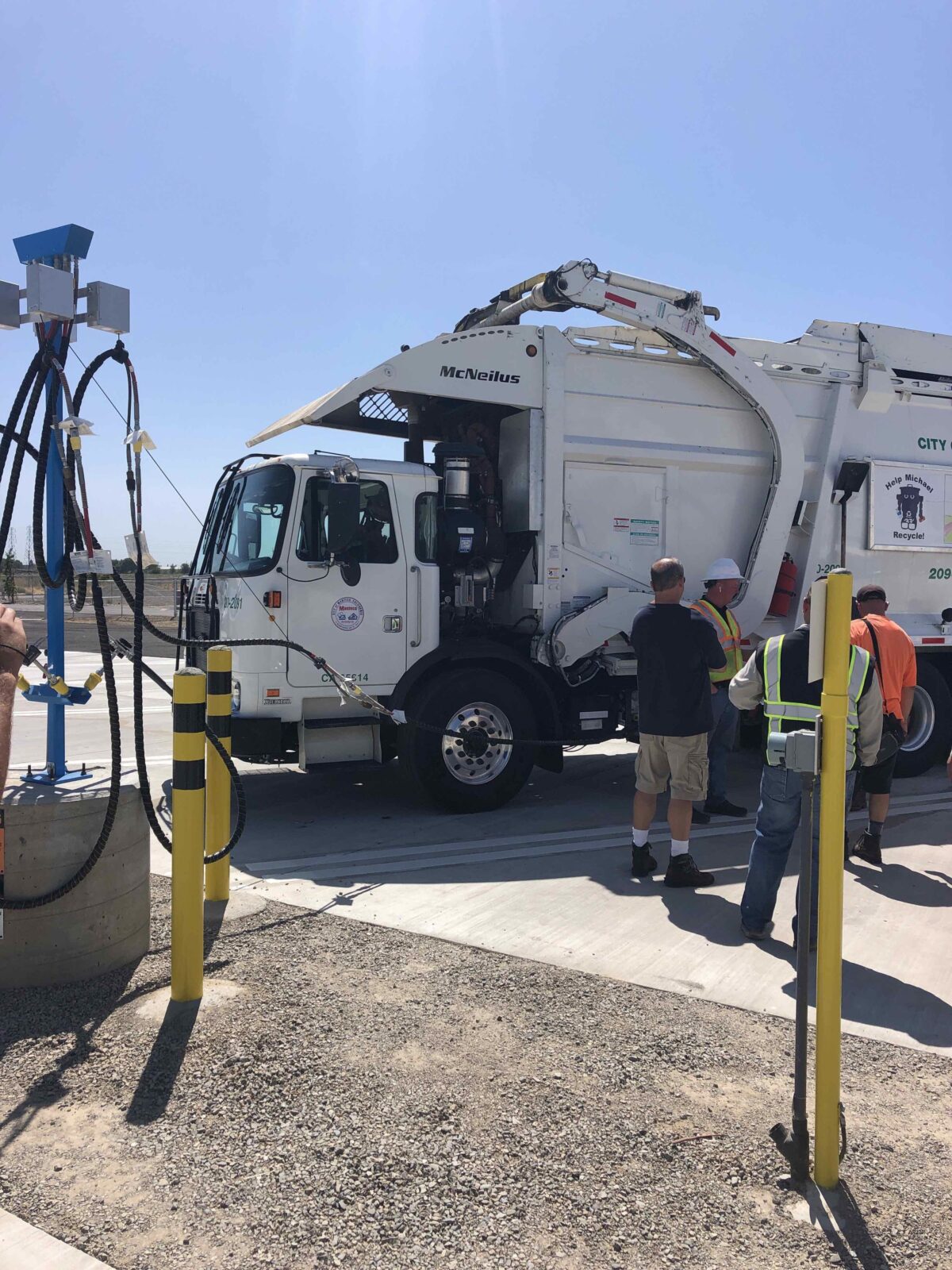The city of Manteca is way ahead of the game when it comes to complying with California’s new law requiring cities to keep food waste out of landfills in two years. Manteca’s upgrade to their Wastewater Treatment Plant, constructed by Western Water, can now process food waste, as well as biosolids from the plant, and turn it into methane that can power its fleet of garbage trucks. The project includes two large anaerobic digesters that “digest” the waste using bacteria and heat, producing biogas that is refined to Renewable Natural Gas (RNG). The compressed RNG goes to filling stations for the trucks and to boilers that are used to heat the anaerobic digesters. Wastewater Treatment Plants in other cities have been used to produce biogas, but Manteca is one of the few to use the biogas to fuel its trucks, reducing the city’s carbon footprint and eliminating food from landfills. Food waste eventually turns into methane at landfills, a greenhouse gas that is 28 times more harmful to the environment as carbon dioxide. This facility captures that gas along with the biogas that historically was burned with a flare and converts it to renewable vehicle fuel. The city is looking for long-term benefits, “It will, in time, start saving the city money, monies that we can then divert to other facilities that need to be built,” said Manteca Mayor Ben Cantu. Other cities that are still trying to figure out a way to comply with the state law are looking at Manteca’s food/waste to energy plant as a model.
- News
- Events

